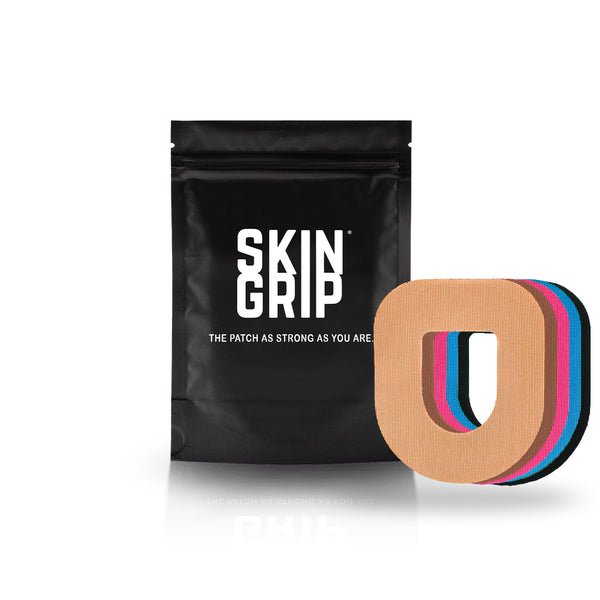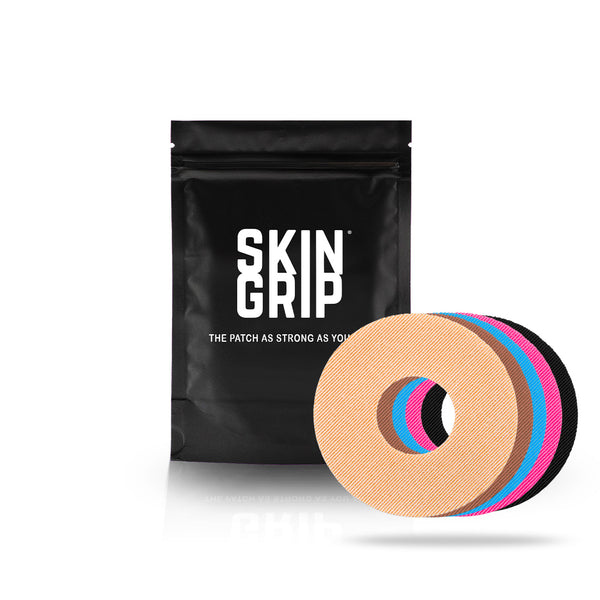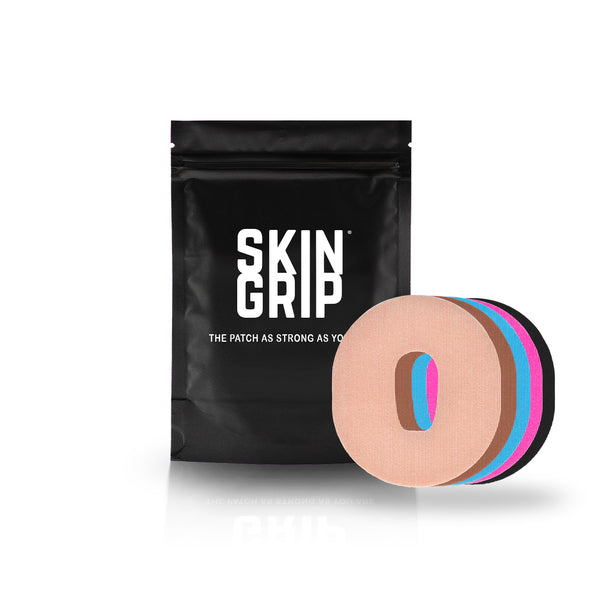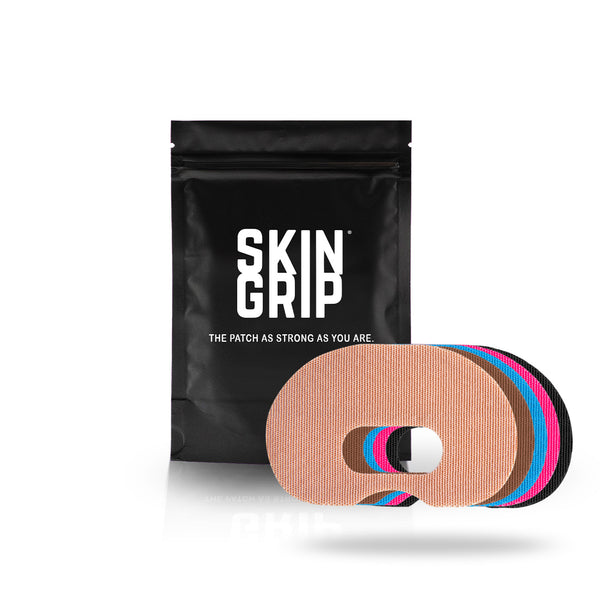*Disclaimer: All content and information in this blog is for informational and educational purposes only. Always consult your health care provider before making any adjustments to your exercise routine or diabetes management.
When you receive a diagnosis of type 1 diabetes, you are sent home with worksheets, folders, brochures, binders, and books. You are overwhelmed with the plethora of information that quite literally has fallen onto your lap and you want to be able to absorb all of the information you possibly can. Diabetes changes so many things in your life that you want to be able to navigate the life that you once had. But, it can be quite difficult when the information you receive is conflicting and make navigating this huge lifestyle change even more overwhelming. This blog post will help you accelerate through the most common myths about lowering your A1C and steps on what you can do instead.

Myth: Restrict Carbs
The number one thing that most people believe will lower their A1C is restricting carbohydrates. If you are someone who prefers to eat a low carb diet and doesn’t feel restricted, continuing doing what works best for you and your management. However for a lot of people they find themselves feeling restricted when following this type of diet. Whether you are receiving information on blogs, google, or popular books like Dr. Bertstein’s Diabetes Solution, there is this undoubtedly toxic belief that people with diabetes should restrict or avoid carbohydrates. Restricting carbohydrates from your diet comes from the belief that carbohydrates are the food group that have the most significant impact on your blood sugar levels. So in theory, if you don’t eat them your blood sugar levels will be easier to manage. This way of thinking perpetuates that carbohydrates are “bad” for people with diabetes.
What to Do Instead: Utilize Food Pairing
Carbohydrates provide your body with a wide variety of nutrients- they are excellent sources of fiber, vitamins, and minerals (not to mention- they taste great!). It is important to understand that carbohydrates are a food group that influence blood sugar levels the most, but you can use that knowledge to your advantage by pairing carbohydrates with other foods. When you eat carbohydrates alone, they are able to be digested quickly and have a most prominent effect on blood sugar levels. However when eaten alongside foods that take longer to digest, like protein, fiber, and fat, the carbohydrates impact will be slowed down by these foods making the impact on blood sugar levels limited.
Myth: Do Detoxes, Cleanses, and Resets
The concept of detoxes, cleanses, and resets can be really appealing. Their marketing alone often promises things like “improve insulin sensitivity,” “normalize blood sugar levels,” and “lose weight.” It can be really tempting to buy into these programs when you are subjected to targeted ads every time you go online. Whether it is a detox, cleanse, or reset these programs provide short-term solutions. It isn’t a realistic way to manage your blood sugar levels long-term. Plus, your liver does enough detoxing for you!
What to Do Instead: Understand Your Hormones
Rather than wasting your money on detoxes and cleanses, try investing your time and energy into understanding your hormones. There are many different hormones from stress hormones like cortisol, epinephrine, adrenaline, and growth hormone and for those who menstruate the hormones estrogen and progesterone that can impact your blood sugar levels. If you ever had a bad night of sleep, you might have realized that your blood sugar levels were a bit more difficult to manage the following morning. Lack of sleep, sickness, growth, and stressful situations can contribute to the release of stress hormones and increase your insulin resistance. Being able to understand how hormonal shifts in your body can influence your blood sugar levels can be incredibly eye opening.
Myth: Just Take Prebolus Insulin & Count Carbs
Diabetes management can sometimes be oversimplified. You may have been told just to count carbs and take insulin before eating and that your blood sugar levels would stay in range. Seems pretty straightforward, right? Well, this “just do it” mentality of taking insulin beforehand and counting carbs can be really difficult in some situations- like going out to eat. This very oversimplified solution to diabetes management is a great starting point when you are newly diagnosed, but there are so many factors that influence your dosing strategy and blood sugar levels depending on the meal you are eating.
What to Do Instead: Reserve Engineer Complex Situations
If you were to just count carbs and take insulin, you will undoubtedly find yourself on a blood sugar rollercoaster. There are many factors that can influence your dosing decision making during a meal that includes: how are you carb counting for the meal, what macronutrients are you paying attention to, how much are you going to eat, have you done any recent activity, are you experiencing any insulin resistance or sensitivity, will this meal impact your blood sugars in the future? All of these questions can help you branch out and bring awareness to different variables that can influence blood sugar levels so you can come up with a gameplan.
Myth: Rely only on Your Endocrinologist
First and foremost, doctors are incredibly intelligent and often spend years dedicated to learning about diabetes. However, we live in a society where our healthcare system is overwhelmed. There aren’t enough doctors for patients for them to really give you the undivided attention and ongoing support that you need. The day-to-day management is often your burden to carry as most people with diabetes only see their doctor 2-4 times per year. When you rely only on your endocrinologist or healthcare provider, you may find that their adjustments work well for a few days to a week, but then those changes stop working. So what do you do, wait 3-6 months for your next appointment?
What to Do Instead: Continuously Assess Your Baselines
Waiting 3-6 months until your next appointment may cause your blood sugars to be out of range for longer periods of time. So when you notice something that is off in your management, like consistent overnight highs for a whole week or every morning after breakfast you shoot up to 300mg/dL, you can make changes yourself or have a plan ready to discuss with your provider. Whether it is adjusting basal rates, insulin to carb ratios, or even taking a closer look at your everyday behaviors, being active and continuously assessing your baselines can make you more attuned with what is going on in day to day management.
Myth: Exercise Daily
Another common myth is that people with diabetes need to exercise daily. This whole concept comes from the stigma between type 1 and type 2 diabetes. It isn’t fair because whether you are type 1 or type 2, there are a number of factors that can influence either diagnosis like lifestyle, genetic, environmental factors, and many more. Oftentimes when someone receives a new diagnosis, they are told to start exercising everyday because it will help manage your blood sugar levels. While exercise can improve your insulin sensitivity and make blood sugar levels easier to manage, it isn’t the only tool you have available to manage your blood sugar levels. Plus, overexercising can actually be considered a stress on your body and you know what happens when your bodies stressed!
What to Do Instead: Reduce Your Stress
Instead of exercising every day, you want to address the biggest culprit which is reducing your stress. Movement can definitely support your stress levels, but overexercising can be like fighting fire with fire and increase your body's insulin resistance levels. There is a place and time for movement and physical activity, but don’t overlook other ways to manage your stress like relaxing, lower intensity workouts, or craving out time for yourself.
Myth: Avoid Variability
Diabetes thrives off of structure and routine because the less variability you have in your life, the less variability you’ll have in your blood sugar levels, right? This looks like eating the same meals every day for every meal, not traveling, avoiding social outings, never missing a workout, and having a rigid schedule with little to no room for flexibility. This approach to diabetes management can seem like a good idea at first because you are engaging in behaviors that prioritize your diabetes management, but what about other areas of your health and your life?
What to Do Instead: Create Habit Anchors
It’s true that diabetes will be with you wherever you go. So, you might as well make the most of it! Whether you are traveling the world or at home, habit anchors can help you create structure and consistency in your day. For example, whenever I brush my teeth, I pre-bolus for breakfast. This is something that I can do whether I’m on vacation, at home, traveling for the holidays, or whereever! Habit anchors can allow you to have flexibility to get out of your house and permission to not eat the same thing everyday for breakfast. All that you have to do is this one habit and it will help you manage your blood sugars and open up opportunities for more moments and flexibility.
Now that you the myths about lowering your A1C and what to do instead, go listen to Episode 3: What I THOUGHT Would Help Lower My A1C vs What Actually Did where Lissie Poyner will walk you through how she implemented these factors in her own personal diabetes management to lower her A1C from 7.1 to 5.7. Available now on Spotify and Apple Podcasts.



















